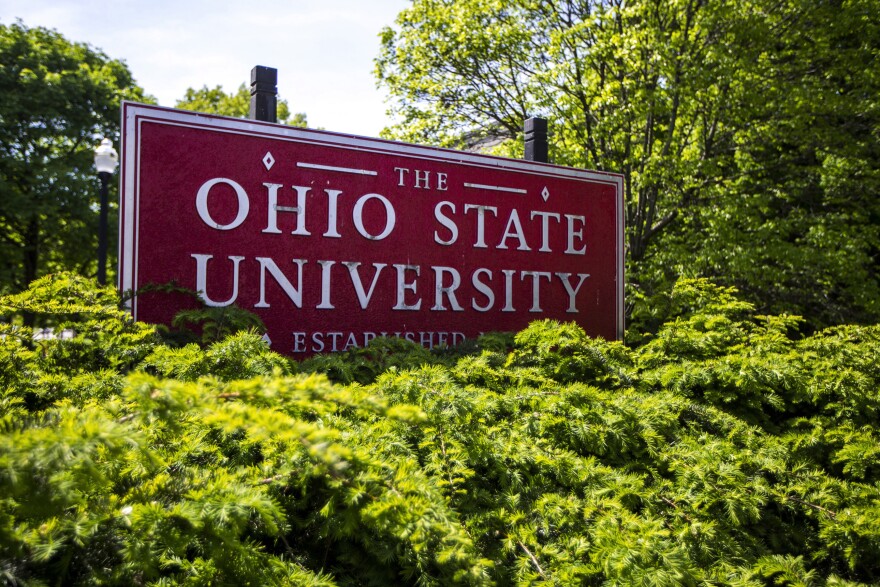A month ago today, Ohio State University left on spring break. Things haven’t returned to normal since.
The same coronavirus pandemic that ground most of the state to a halt, also forced university administrators to rapidly reorganize every aspect of campus life. Dorms have been cleared. Classes have gone online for the rest of the academic year, and the summer semester too.
Spring commencement will still feature Apple CEO Tim Cook, but he’ll address the graduating class virtually.
Speaking on WOSU's All Sides With Ann Fisher on Thursday, Ohio State president Michael Drake insisted graduates will get to walk the stage in a traditional commencement once the threat of the coronavirus passes.
“We are always thinking about when it’s going to be safe to bring a crowd of 60 or 70,000 together and when that’s the case… we’ll be able to plan another ceremony,” Drake said.
And if commencement crowds create problems for spreading the disease, Drake admits this fall’s football season could be in jeopardy.
“We’re not assuming, necessarily, that the season is going to start and be like last season was - that’s not at all a given,” Drake says. “We are not also thinking that there won’t be a season.”
The shutdown has begun to take a noticeable toll on the school’s balance sheets, but Drake says Ohio State is well positioned to manage the crisis. The university has no plans for layoffs in the near or medium-term, and oddly enough, previous leaders established a pandemic relief fund more than a decade ago.
Despite the broader closure, some university operations are continuing. Drake notes someone needs to change out the liquid nitrogen keeping ice cores frozen at the Byrd Polar Research Center, and of course, the school also runs a hospital.
“Certainly not stopping research on looking for therapies and treatments and vaccines and the other things that will help us with COVID,” Drake adds.
While the school will manage economically, Drake says he’s concerned about how the crisis is impacting students in precarious financial situations.
“We particularly think about those who are the first-generation or students whose families are having particular economic stress in this time, and want to make sure that we’re reaching out to them, and I will say that’s a part of some of our conversations every day,” Drake says.
Drake was a bit harsher toward those who have continued hosting parties or other social gatherings around the school.
“What they are doing is putting themselves at risk and that’s a bad thing, but they’re also putting at risk other people in the community, particularly vulnerable people in the community, and that’s inexcusable,” Drake says. “It’s reprehensible, inexcusable behavior and it offends me personally and professionally.
Drake also addressed the question of presidential transition. He announced his intention last November to step down at the end of the academic year.
But Drake says the coronavirus may have changed those circumstances.
“I don’t want to leave at the wrong time abruptly, you know, the concept is to run a fast lap and pass over the baton in a smooth way,” Drake says. “And so, just because things are so uncertain, it’s not quite as certain as it would have been a month or a month and a half ago—that will be determined as we go forward.”






